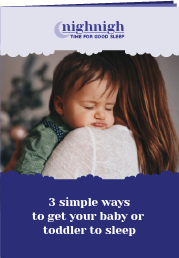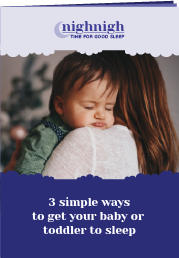Sleep, the star of the show.
I’ve noticed in the last week that sleep is getting major airtime on some of our biggest networks. TV Channels 7, 9 and now streaming giant Netflix have been showcasing sleep. Netflix even have a dedicated mini series called “headspace, Guide to Sleep”. As a sleep health professional, and major advocate for good sleep, this kind of attention to a very serious issue is long overdue and highly welcomed. Media focus on how important sleep is to our mental health and physical wellbeing, has been on the back-burner for too long, and now as sleep enters the spotlight, sleep health professionals like myself, can awaken the world to the ever growing epidemic of bad sleep, that affects so many people around the globe.
With 1 in 9 adults now suffering from insomnia, and some surviving on barely 4 hours sleep a night and teens getting well under the recommended amount, means more anxiety and decreased performance in the workplace, at home and at school. Combined with the uncertainty of the world in general, NOW IS THE TIME to take care of yourself by working with a sleep professional. I created the nigh nigh programs to combat the ever growing need for people to have effective techniques that create good sleep. I am passionate about solving sleep for every client I work with, and if the media continues to recognise the importance of getting good sleep, speaks to sleep health professionals to get the right information out there, and spreads the word about sleep health, I’m pretty confident that we will all sleep better.
More talk and more action is needed for a good night’s sleep…
As reported by 7News this week, a new report shows the affects of poor sleep costs our economy $14 Billion dollars, with an $11 billion loss in production.
When people are losing sleep health declines. Sleep Health awareness is yet to make any real impact as government led health promotion campaigns focus on healthy diet and the importance of exercise without considering that tired people make poor health choices. That quick takeaway or choosing processed foods instead of going to the effort of shopping and preparing fresh healthy meals can become all too frequent when you are surviving on less than ideal sleep which for adults, should be ideally between 7-8 hours on average. Experts like Professor David Hillman from Sleep Health Foundation say governments and businesses should wake up to the impact of bad sleep.

What we know about bad sleep is that it is often a complex mix of problems and single solutions like addressing sleep hygiene, although important, is often a bandaid solution that rarely offers a complete return to good solid sleep and a long-term resolution of the problem.
Along with myself and other sleep experts in the field, beginning with the right diagnosis is where you should start. What we know is that insomnia can co-exist with other sleep conditions like sleep apnoea, sleep movement disorders and circadian rhythm disorder so treating only those may not give you the restful night you are seeking. As major meta data studies confirm, unlearning bad habits and behaviours using behavioural therapies as part of an holistic approach means you could avoid being in the 27% of insomniacs that relapse plus turn your poor sleep around in as little as two weeks or less.


According to sleep expert Professor Michael Gradisar, it is important to have your sleep treated by qualified sleep experts that base their treatments on sound and validated research.
As a sleep health professional I hear many adults comment that they are using sleep medications with little effect and do not get the sleep they need to wake up feeling refreshed. Unfortunately sleeping pills are recommended for short term use (under 4 weeks) but many people stay on them much longer and even for years. They are often what GP’s will first prescribe and do not address how to re-learn sleep in most instances. Long term use of sleep medications can lead to habituation because attempts at reducing these types of medication makes insomnia worse and elevates anxiety around sleep. “It become a double edged sword of taking pills that don’t give you adequate sleep and not being able to get off them”.
Addressing the nations bad sleep means taking an holistic view of the problem, monitoring the results and modifying if needed. The gold standard treatment includes proven therapies like CBT- Cognitive Behavioural Therapy and BBT- Brief Behavioural Therapy that are derived from sleep psychology to diagnose and treat insomnia. Recent data says that as little as one to two weeks using brief therapies can produce moderate to large sleep changes, all backed by science.
The haphazard and limited approach to addressing sleep problems like swallowing a pill, or buying a new pillow without an holistic assessment compromises successful sleep outcomes and that may explain why our nation isn’t getting sleep solved.






